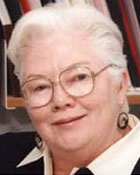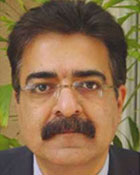Date: Thursday, April 22, 2010
Location: Nursing Building, Room 1024
Organizers: Krista Casazza, Keslie Woods, Sarah Peek, Jose R. Fernandez & David B. Allison
Sponsors:
- UAB’s Nutrition Obesity Research Center (NORC)
- Abbott Nutrition
Overview
A coordinated research program focusing on the developmental origins of obesity is not available at UAB. Our preliminary environmental assessment revealed a number of investigators across various schools, departments, and University-wide Centers. We hope that through this symposium we will catalyze research on the developmental origins of obesity. As a starting point, in a symposium open to the broad community, five internationally recognized scholars investigating the developmental origins of obesity will provide an overview of critical basic, clinical, and translational research challenges related to obesity across the lifetime developmental continuum. Subsequently, the panel will meet privately with several NORC members to advise of the development of training programs and grants in this area.
Agenda
| Time | Event | Video |
|---|---|---|
| 8:30-8:45 AM | Continental Breakfast/Registration | |
| 8:45-8:55 AM | Welcome | |
| 8:55-9:00 AM | Introduction Mark Nijland, Ph.D. | Watch Video |
| 9:00-9:45 AM | Perinatal Nutrient Environment: Contribution to Offspring Metabolic Phenotype | |
| 9:45-9:50 AM | Introduction of Janos Zempleni, Ph.D. | Watch Video |
| 9:50-10:35 AM | Repression of Transposable Elements by Histone Biotinylation | |
| 10:35-10:40 AM | Introduction of Barbara Corkey, Ph.D. | Watch Video |
| 10:40-11:25 AM | The Thrifty Phenotype: A View from the Fat Cell | |
| 11:25-11:35 AM | Break | |
| 11:35-11:40 AM | Introduction of Caroline Davis, Ph.D. | Watch Video |
| 11:40-12:25 PM | Brain Reward Mechanisms in the Risk for Overeating and Obesity | |
| 12:25-12:30 PM | Introduction of Pathik Wadhwa, MD, Ph.D. | |
| 12:30-1:15 PM | Environmental Exposures in the Development of Obesity | |
| 1:15-1:45 PM | Panel Discussion (Speakers 1-5) | |
 Mark Nijland, Ph.D.
Mark Nijland, Ph.D.
Dr. Mark Nijland obtained his BA and Ph.D. from Witwatersrand University in South Africa. He undertook post-doctoral research at the University of California Riverside between 1989-1992. He was an Assistant Professor in the Department of Obstetrics and Gynecology at UCLA from 1995-2002 before joining the research group at Cornell. He moved with the group to New York University in 2002 as an Associate Professor. He joined the University of Texas Health Center full-time faculty in the fall of 2004. His major interests are in the development of the cardiovascular system and how the mother and her offspring regulate their blood pressure and salt and water balance.
 Janos Zempleni, Ph.D.
Janos Zempleni, Ph.D.
Janos Zempleni, is an Associate Professor of Molecular Nutrition at the University of Nebraska-Lincoln, Department of Nutrition and Health Sciences. His professional interest includes Chromatin biology, biotinylation of histones; epigenetics; gene regulation; DNA damage and repair; cell stress and senescence; heterochromatin and gene repression; nutrition. Dr. Zempleni was recently recognized as one of six finalists for the "Future Leader Award" by the International Life Sciences Institute USA in both the 2004 and 2005 competitions, Winner of the Mead Johnson Award 2006 by the American Society for Nutrition, Winner of the Gamma Sigma Delta Research Award 2007 by the Nebraska Chapter of Gamma Sigma Delta and his paper entitled “K4, K9, and K18 in human histone H3 are targets for biotinylation by biotinidase” was selected by Faculty of 1000 Biology for the significant contributions it makes to the chromatin field.
 Barbara E. Corkey, Ph.D.
Barbara E. Corkey, Ph.D.
Barbara E. Corkey is Vice-Chair for Research and Professor of Medicine and Biochemistry in the Department of Medicine at Boston University School of Medicine, where she is also Director of the Obesity Research Center of Boston Medical Center and the Principal Investigator of the multi-institutional NIH-funded Boston-Obesity/Nutrition Research Center. She is Chair of the Board of AdipoGenix, a start-up drug company that she co-founded to develop drugs to treat obesity. She just completed a term as Editor-in-Chief of the journal Obesity. She has chaired the program committee for the national annual meeting of the American Diabetes Association, served on the National Peer Review Oversight Committee for the American Heart Association and served on review committees of the NIH and the Juvenile Diabetes Foundation. Professor Corkey received her Ph.D. in 1981 from the University of Pennsylvania, Department of Biochemistry and Biophysics for studies focusing on branched-chain amino acid metabolism. The main questions in the Corkey laboratory concern how fuels regulate insulin secretion and how the fat cell determines whether to store or burn fat.
 Caroline Davis
Caroline Davis
Caroline Davis is currently a Full Professor at York University in the Department of Kinesiology and Health Sciences, and the Graduate Programme in Psychology. She is also a Research Scientist in the Department of Psychiatry, Faculty of Medicine, at the University Health Network (Toronto General Division); and an Affiliate Scientist at the Centre for Addiction and Mental Health. Currently, she is the Principal Investigator of a CIHR grant on the genetic and psycho-behavioral risk factors of binge eating. She also holds an SSHRC grant as a sole investigator on a study examining whether decision-making deficits contribute to the risk profile for obesity. Her primary areas of expertise include ‘brain and behavior’ and the etiological role of personality and mood in the study of disordered eating.
 Pathik D. Wadhwa, MD, Ph.D.
Pathik D. Wadhwa, MD, Ph.D.
Pathik D. Wadhwa, is an Associate Professor in the Department of Psychiatry & Human Behavior at the University of California, Irvine. He also holds joint appointments in the Departments of Obstetrics & Gynecology and Pediatrics. In addition, he is Director, University of California, Irvine Behavioral Perinatology/Developmental Origins of Health and Disease Research Program. His medical degree and psychiatry residency were completed (1988) at the University of Poona, B. J. Medical College, India. He completed his Ph.D. (1993) at the University of California, Irvine. His interests include behavioral perinatology, biobehavioral processes, stress, pregnancy, fetal development, prematurity, and fetal programming of health & disease.